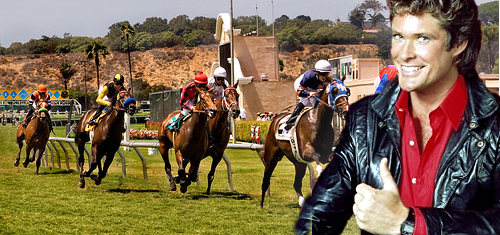 California’s online poker stakeholders are holding their breath ahead of the state’s latest legislative hearing on Wednesday.
California’s online poker stakeholders are holding their breath ahead of the state’s latest legislative hearing on Wednesday.
The state Assembly’s Governmental Organization Committee will convene on Wednesday at 1:30pm PST to consider the merits of approving Assemblyman Adam Gray’s AB 2863 online poker bill, the latest attempt to harmonize the competing concerns of tribal gaming operators, racetracks and online gambling technology providers.
There have been two recent developments regarding AB 2863; one of which is positive, while your opinion of the other depends on where you stand on the great ‘bad actor’ divide and/or whether you work for Amaya Gaming’s PokerStars brand.
In the first development, California’s horseracing interests have officially pledged to support AB 2863, subject to a few conditions. Chief among these conditions is ensuring racing receives the $60m annual kickback Gray added to his legislation in January in exchange for the tracks foregoing the right to operate their own online poker sites.
In a letter to Gray signed by nine entities representing track operators, breeders, owners and other racing interests, the horsey set notes that AB 2863’s most recent draft hadn’t specified tax rates and license fees for online poker operators. Since these fees are the primary source of the $60m, racing is concerned about “the likelihood that the $60m will be available.”
To be clear, Gray’s legislation had promised the tracks annual payments of “up to” $60m but few if any non-racing observers believed that racing would ever receive the full $60m in any year except year one, when operators would be required to pay upfront license fees (priced as $15m in earlier drafts).
Nevertheless, racing’s letter suggests AB 2863 should be amended to stipulate that if “the $60m minimum” wasn’t fully funded in any given year, the unpaid amount would be carried over into the following year(s).
Racing also wants to limit who gets to share in the annual kickbacks, with any association that ceases to offer live racing left on the sidelines. Finally, racing seeks the right to participate in future non-poker online gambling activities if and when the state deems such activities okay.
KICKING BAD ACTORS DOWN THE ROAD
The second development involves the ‘bad actor’ issue, which involves certain tribes’ belief that any operator or brand that conducted online gambling activity in the state following the 2006 passage of the Unlawful Internet Gambling Enforcement Act shouldn’t be eligible for a California poker license.
The so-called Pechanga-led coalition that has vehemently opposed PokerStars’ presence in California apparently claimed a victory last week via two amendments to AB 2863 that requires the legislature to precisely define who gets to splash in California’s online poker pool.
The similarly worded amendments stipulate that AB 2863 would only take effect after “criteria are established by statute addressing involvement in internet betting prior to the state’s authorization of internet poker pursuant to its provisions.”
It’s anyone’s guess as to how high a hurdle these as yet undefined criteria might present to operators with historical US dealings, but the amendments will at least ensure that operators will be forced to justify their past behavior. It’s also clear that, despite hopeful reports to the contrary, the Pechanga coalition hasn’t shed any of its PokerStars antagonism.
On the other hand, the inclusion of the bad actor language could provide the grease that would allow legislators to approve AB 2863, albeit with the knowledge that the divisive sticking point was simply being kicked down the road.
Amaya’s 2014 acquisition of PokerStars and the site’s subsequent approval to operate in New Jersey’s online gambling market was believed to have expunged most of the negative association from Stars’ pre-Amaya days. But the insider trading charges recently filed against Amaya CEO David Baazov have given the Pechanga coalition fresh ammunition regarding the company’s suitability, which may, if Baazov is convicted, prove even more damaging.






